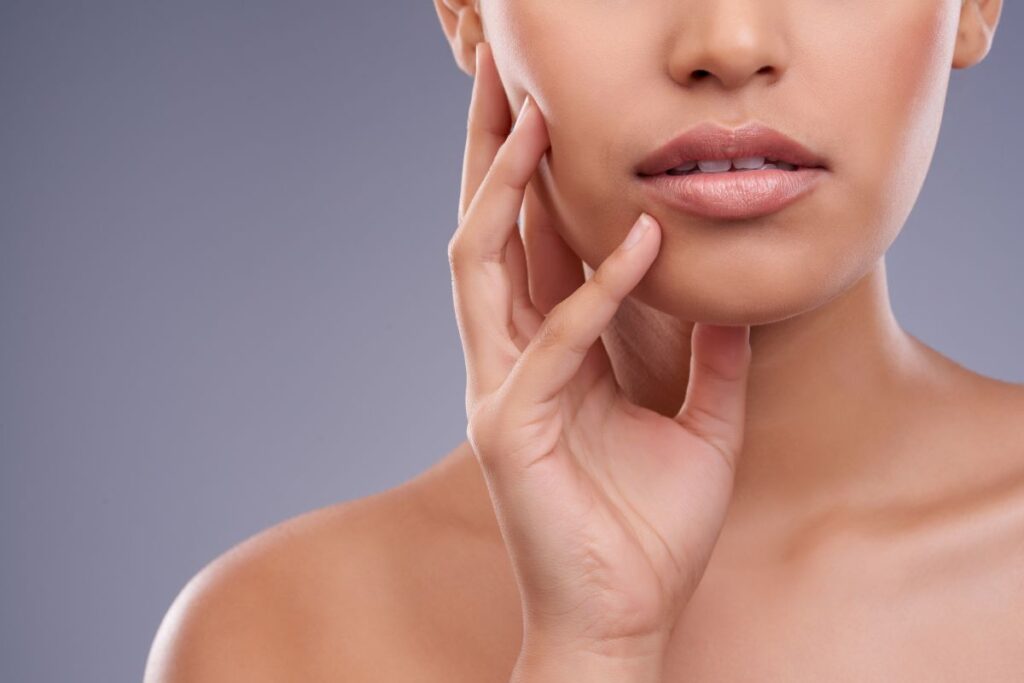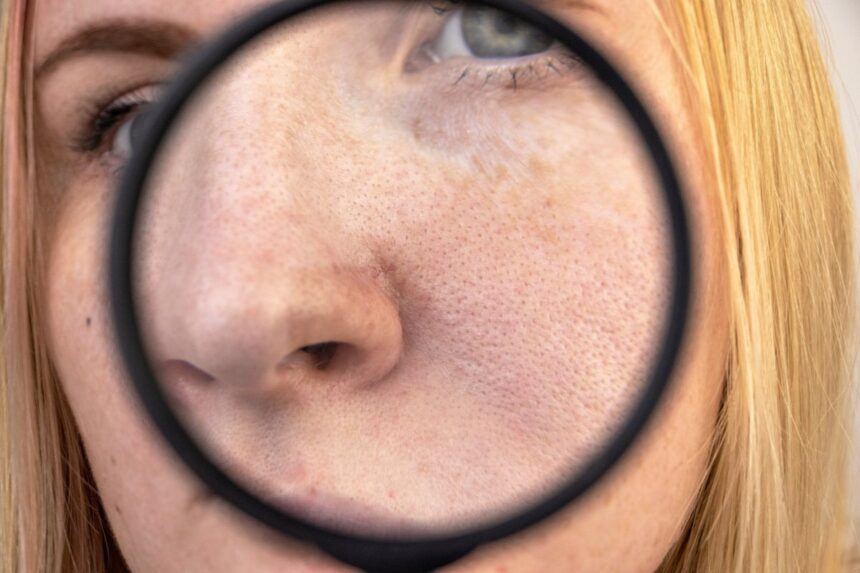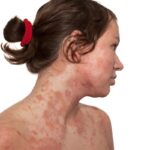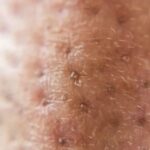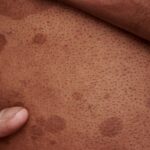When it comes to skincare, one question frequently arises: does shea butter clog pores? This concern is particularly valid for those of us navigating the complex world of beauty and skincare products, seeking to understand what’s beneficial and what’s potentially harmful to our skin. Shea butter, known for its rich moisturizing properties, is a common ingredient in a myriad of skincare products. But with the buzz around its benefits, comes the question of its impact on our skin, especially for those prone to acne or with oily skin types. In this article, we’ll explore the nature of shea butter, unraveling its effects on the skin, and addressing the pressing questions: Does shea butter cause breakouts? Is Shea Butter Comedogenic? Is shea butter good for clogged pores? And importantly, can you leave shea butter on your face overnight? Join us as we explore the intricacies of shea butter, aiming to demystify its role in skincare and how it can be incorporated effectively into your skincare regimen.

Understanding Shea Butter
Shea butter is extracted from the nuts of the Shea tree (Vitellaria paradoxa), which is native to West Africa. Known for its creamy texture and high concentration of vitamins and fatty acids, shea butter has been used for centuries, not just for its skin-nourishing properties but also for its healing benefits. Rich in Vitamin A, E, and F, it offers UV protection (it’s SPF ~6) and provides the skin with essential fatty acids and the nutrients necessary for collagen production.
In skincare, shea butter is lauded for its exceptional moisturizing qualities. It’s a common ingredient in lotions, creams, balms, and even cosmetics, thanks to its ability to soften and soothe the skin. Beyond moisturization, shea butter has anti-inflammatory and healing properties. It can condition, tone, and soothe your skin, making it a versatile addition to any skincare routine.
Common Uses in Skincare
- Moisturizing: Its rich, emollient properties make shea butter a popular choice for body butters, hand creams, and lip balms.
- Anti-Inflammatory: Beneficial for reducing redness and swelling on the skin, making it a go-to for post-sun care or to soothe skin conditions.
- Healing: Used to treat scars, eczema, and minor burns, shea butter has a small amount of healing properties attributable to its vitamin content.
- Anti-Aging: Promoting collagen production, it helps the skin to appear more youthful and less wrinkled.
Understanding the origins and properties of shea butter sets the stage for a deeper exploration into its effects on the skin, especially concerning whether it clogs pores or not. By appreciating its natural benefits, we can better navigate the nuances of incorporating shea butter into our skincare routines responsibly and effectively.
Does Shea Butter Clog Pores?
A pivotal concern for many when incorporating new products into their skincare routine is whether these products will clog pores, leading to breakouts and skin irritation. Given shea butter’s thick, rich consistency, it’s natural to question if it falls into this category. The answer isn’t a straightforward yes or no but rather depends on individual skin types and how the shea butter is used.
Comedogenic Rating
The comedogenic rating of a substance measures its tendency to clog pores. Ratings range from 0 to 5, with 0 being least likely to clog pores and 5 being most likely. Shea butter is generally rated as a 0-2 on this scale, which means it’s unlikely to clog pores for most people. However, because skin types vary greatly, what works for one person may not work for another. Shea butter’s relatively low comedogenic rating makes it a safer choice for many, but individuals with very oily or acne-prone skin should proceed with caution and monitor their skin’s reaction.
Effect on Different Skin Types
- Normal to Dry Skin: Shea butter is highly beneficial for those with normal to dry skin, providing deep moisture and aiding in the skin’s natural barrier repair without causing clogged pores.
- Oily and Acne-Prone Skin: While shea butter is non-comedogenic, those with oily or acne-prone skin should use it sparingly. It’s best to start with small amounts and observe how your skin responds over time.
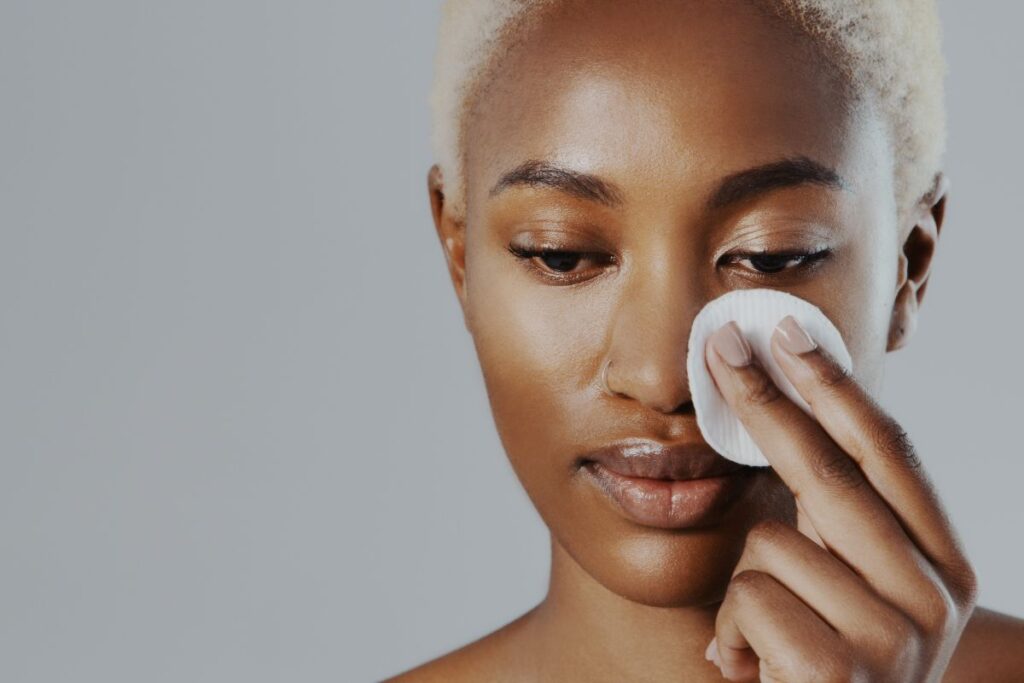
Does Shea Butter Cause Breakouts?
The fear of breakouts is a major concern when trying new skincare products. While shea butter is generally non-comedogenic and unlikely to cause acne, improper use or overuse can lead to skin issues for some individuals. Ensuring you’re using pure, unrefined shea butter and incorporating it into your routine gradually can help mitigate potential negative reactions.
Tips to Avoid Breakouts:
- Patch Test: Always conduct a patch test before fully integrating shea butter into your skincare routine.
- Quality Matters: Opt for high-quality, unrefined shea butter to avoid impurities that might irritate the skin.
- Less is More: Use shea butter in moderation, especially if you have oily or acne-prone skin.
Is Shea Butter Comedogenic?
Shea butter has a low comedogenic rating, making it an unlikely culprit for clogged pores. However, the term “comedogenic” can be misleading, as it doesn’t account for individual skin reactions. What’s non-comedogenic for one person might not be the same for another. The key is to understand your skin type and how it reacts to rich moisturizers like shea butter.
Is Shea Butter Good for Clogged Pores?
Contrary to the belief that shea butter might exacerbate clogged pores, it can actually be beneficial due to its anti-inflammatory properties. It can soothe the skin and may help reduce the appearance of clogged pores when used correctly. However, it’s not a cure-all for acne or clogged pores and should be part of a broader skincare routine aimed at addressing these issues.
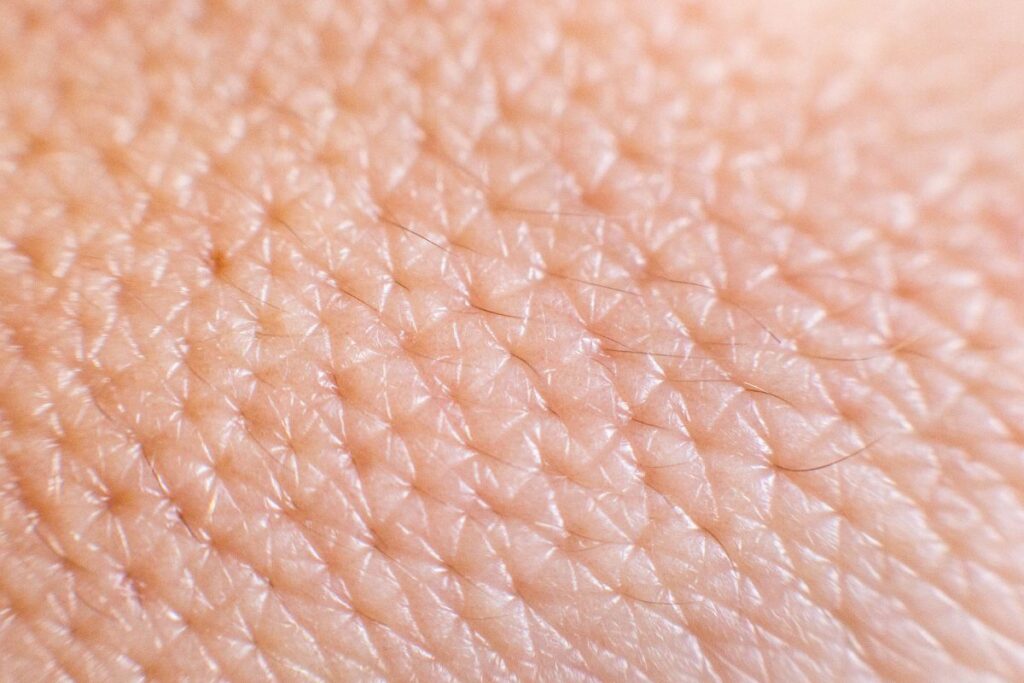
Is Shea Butter Good or Bad for the Face?
Shea butter offers numerous benefits for facial skin, particularly in terms of moisturization and nourishment. Its rich content of vitamins and fatty acids can help strengthen the skin’s barrier and improve overall skin health. Yet, the suitability of shea butter for your face largely depends on your skin type and concerns. For most, it’s a beneficial addition to their skincare regime, but for others, especially those with very oily skin, it might require cautious use.
Can You Leave Shea Butter on Your Face?
Leaving shea butter on your face overnight as part of your skincare routine is generally considered safe. It can provide prolonged hydration and take advantage of shea butter’s healing properties. However, it’s crucial to listen to your skin. If you notice any adverse reactions, such as breakouts or irritation, you might want to limit its use or consult with a dermatologist.
Best Practices for Using Shea Butter in Skincare
Adopting shea butter into your skincare routine can yield numerous benefits, from enhanced moisturization to improved skin texture and health. However, to fully enjoy these benefits without the risk of clogged pores or breakouts, it’s important to follow some best practices.
How to Choose High-Quality Shea Butter
- Go for Unrefined: Unrefined shea butter is processed without chemicals, retaining its natural vitamins and minerals. It’s typically a pale yellow color and has a nutty scent.
- Certifications: Look for certifications that indicate ethical sourcing and purity. Organic and fair-trade certifications are good indicators of quality.
- Texture and Smell: High-quality shea butter should be smooth, not grainy, and have a pleasant, earthy smell.
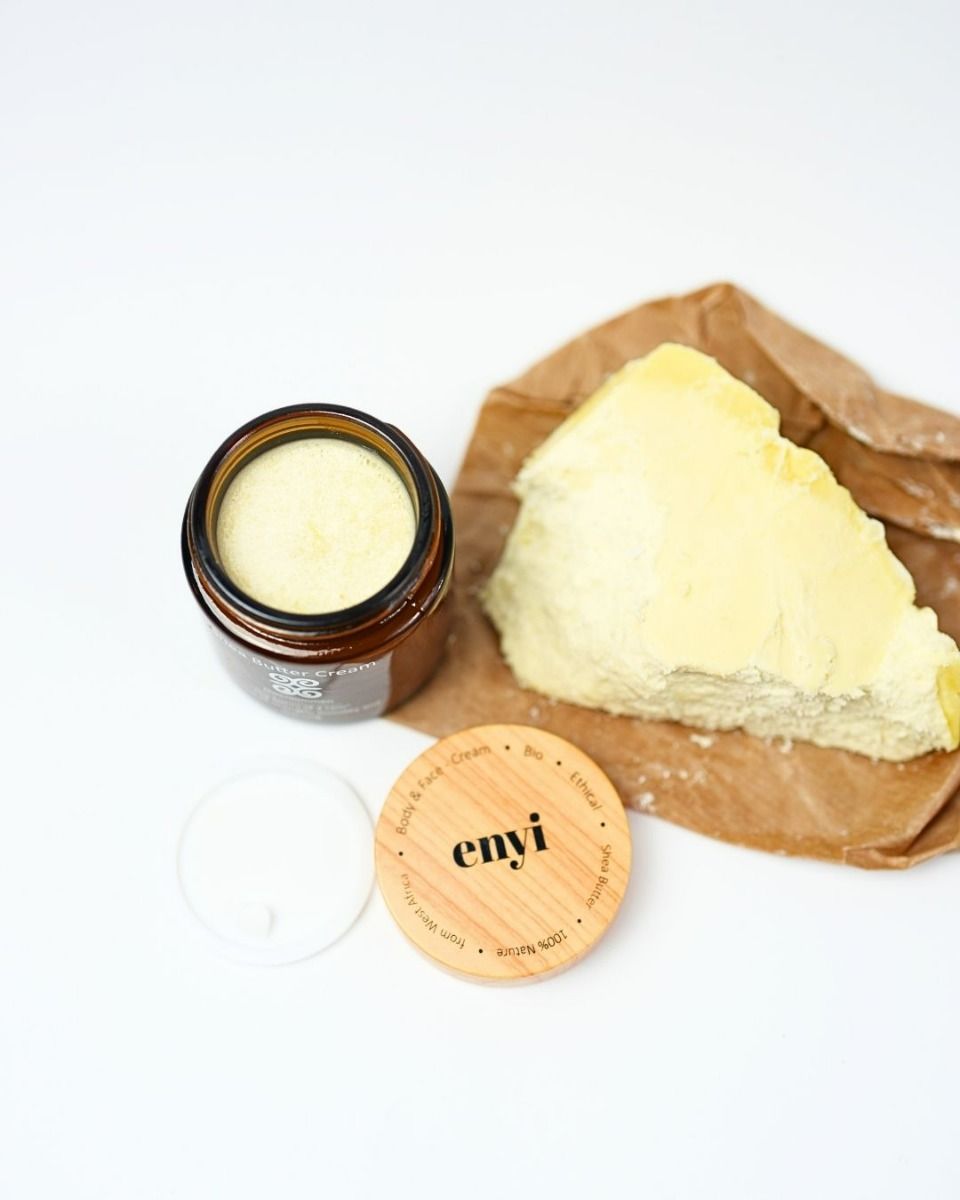
High Quality Shea Butter
Unparalleled Skin Benefits: Rich in vitamins A, E, and F, our Bio Shea Butter is a powerhouse of nutrients. Its hydrating and anti-inflammatory properties make it ideal for all skin types, aiding in the healing of dry, irritated, and aging skin. Its natural composition helps in maintaining skin elasticity, offering anti-aging benefits.
Application Tips for Optimal Benefits
- Cleanse First: Apply shea butter to clean, slightly damp skin to help lock in moisture.
- Warm It Up: Shea butter melts at body temperature. Warm it between your hands before applying to ensure it spreads evenly.
- Start Small: A little goes a long way. Start with a small amount, especially on the face, to gauge how your skin reacts.
- Nighttime Use: Consider using shea butter in your nighttime routine to allow your skin to absorb its nutrients fully without interference from makeup or other products.
Conclusion: Embracing Shea Butter With Confidence
Shea butter’s rich texture and nourishing properties make it a prized ingredient in skincare. While concerns about clogged pores and breakouts are valid, understanding how to incorporate shea butter properly can mitigate these risks. With its low comedogenic rating and numerous skin benefits, shea butter is suitable for most people when used correctly.
Does shea butter clog pores? Not necessarily. It’s all about how you use it and what your specific skin type needs. Shea butter can be a wonderful addition to your skincare routine, offering deep hydration, soothing inflammation, and promoting healthier skin. Whether you’re dealing with dry skin, looking for anti-aging solutions, or simply seeking a natural moisturizer, shea butter has something to offer.
Remember, skincare is personal. What works for one person may not work for another. Start with small amounts, choose high-quality, unrefined shea butter, and pay attention to how your skin responds. By following these guidelines, you can enjoy the myriad benefits of shea butter without fear of clogged pores or breakouts.
